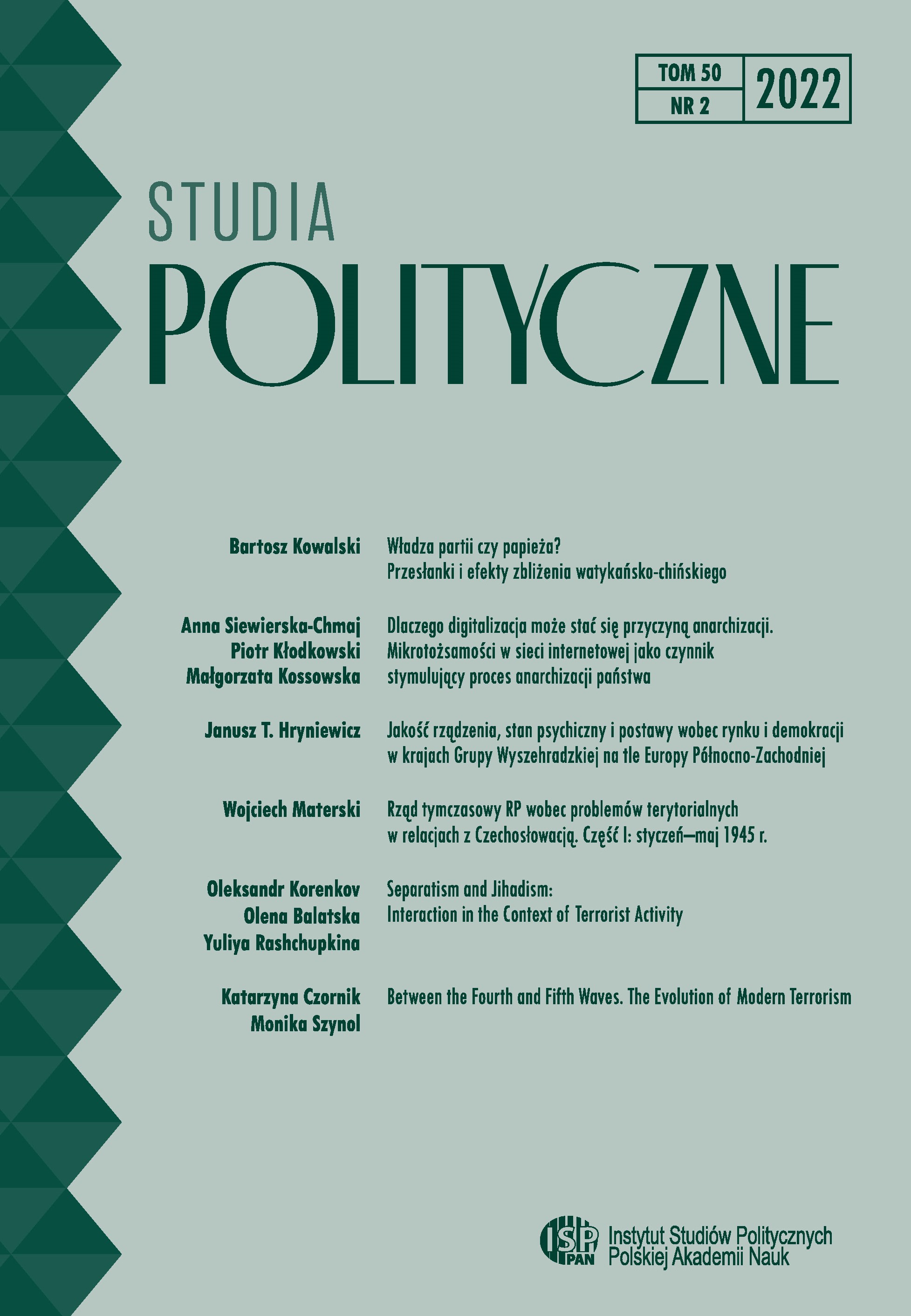Separatism and Jihadism: Interaction in the Context of Terrorist Activity
Separatism and Jihadism: Interaction in the Context of Terrorist Activity
Author(s): Oleksandr Korenkov, Olena Balatska, Yuliya RashchupkinaSubject(s): Security and defense, Studies in violence and power
Published by: Instytut Studiów Politycznych PAN
Keywords: jihadism; separatism; terrorism;
Summary/Abstract: According to the well-known concept of consequential waves of terrorism, proposed by American researcher David C. Rapoport, since 1979, the world has encountered a wave of religious terrorism. Religiously motivated terrorists are the most dangerous and cruel terrorists who continue to lead the world. All four terrorist groups responsible for 55 per cent of total deaths in 2019 are jihadists (Global Terrorism Index 2020). The Taliban, Boko Haram, ISIL, and Al-Shabaab all fight for the establishment of their own quasi-state entities within the borders of existent sovereign states. This political objective associates the jihadists with another ideological movement – separatist-terrorists – in Rapoport’s model. Despite apparent distinctions in ideological foundations and political agendas, these two movements are similar in their struggle for self-determination within the borders of sovereign states. In this article, we use data from the Global Terrorism Database to compare how these two ideological movements with similar political objectives influence each other in the area of terrorist activity. Having analysed and reviewed information about 3,617 terrorist organisations that committed at least one terrorist attack from 1970 to 2018, we check how jihadist and separatist-terrorist activities were interrelated and how this interrelation manifested itself in different countries.
Journal: Studia Polityczne
- Issue Year: 50/2022
- Issue No: 2
- Page Range: 111-138
- Page Count: 28
- Language: English

